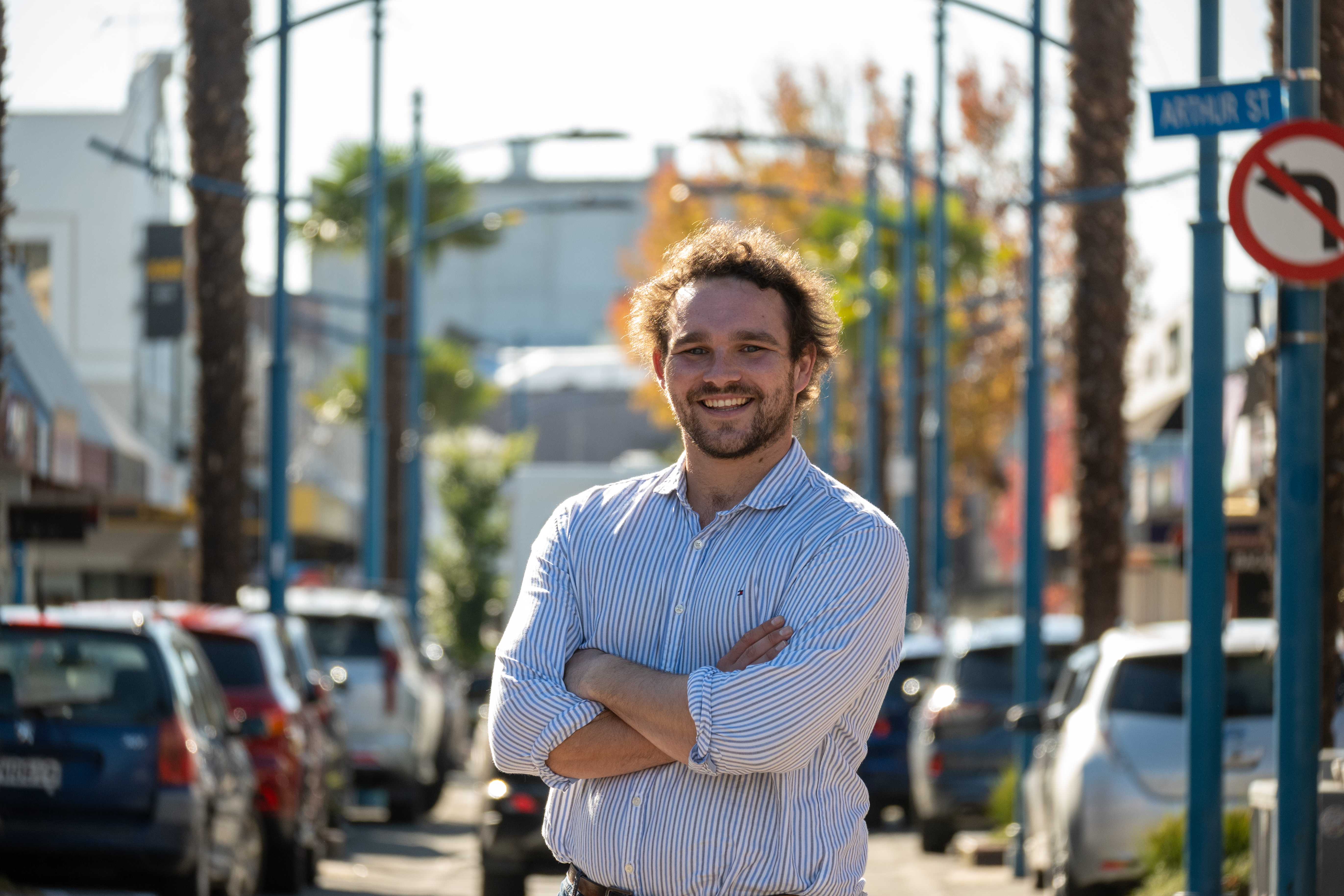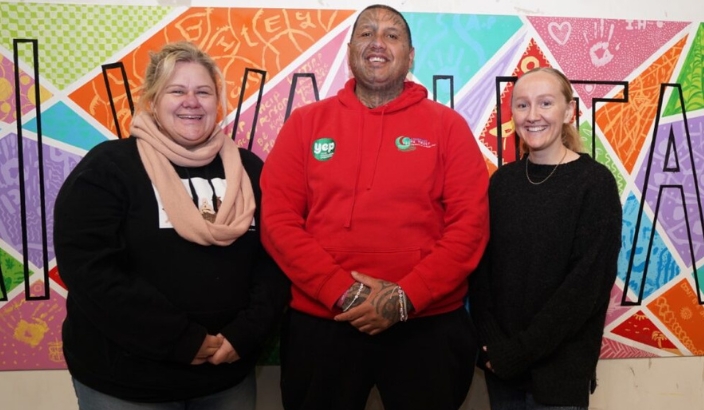Homeless youth ‘falling through the gaps’


Maxine Anderson-Sweeney, Lee Tepuia and Lottie Savage say Marlborough has a sense of tunnel vision to the extent of youth homelessness in Marlborough. Photo: William Woodworth.
Homeless 12-year-olds, car-sleeping employed youths and skyrocketing numbers of requests to access Marlborough Youth Trust’s ‘open food cupboard’ policy sound like big city issues.
But these are tales told recently by youth workers Lottie Savage, Lee Te Puia and Maxine Anderson-Sweeney, who say Marlborough’s vulnerable young people need a far more significant leg-up to access what they consider basic necessities.
Lottie, Lee and Maxine say there’s a variety of vicious cycles particularly hindering Marlborough’s young people which would make significant community-wide impacts if they were addressed and hope more Marlburians take notice, especially during local body elections.
“For local youth who don’t have solid foundations to grow and thrive from, all the protective factors that help a child to thrive – food, clothes, schooling and socialising - become a luxury,” says Lottie.
“People without permanent addresses can’t apply for benefits or doctors and having to fill out rental applications where they have no references and assets competing against professional families, they’re in so many interlinking vicious cycles.
“Projects like Transitional Housing are really hard to access for any youth not living at home, including those that have got their own families, adding complex, long applications for what many of us consider basic necessities”.
“If we don’t nurture young people and give them the tools to have that success, we’re just going to see more and more lives filled with hardship.”
A sense of ‘tunnel vision’ for the struggles of fellow Marlburians by only relating homelessness to those living on the street helps to hide the true extent of the issue, they say.
“When we say homelessness, it’s more than just street sleepers because we’re talking couch surfing staying with friends, car sleepers, hotel and motel short stays - it’s a big thing here that goes unaddressed,” says Lee.
“Honestly, the truth is tough and we’re seeing it daily obviously dealing with rangatahi, but it’s an issue impacting all ages.”
A specific frustration comes from the dismantling of Whanau Ora, which facilitated wrap-around support for families receiving help from a range of interconnected community bodies.
However, the Youth Truth see solutions are out there in other regions, with available emergency youth homes being a key, but say takes a willingness for organisations to follow through with ongoing support.
“Whakatū Marae in Nelson has a one-stop-shop with accommodation for homeless people and families with wraparound support and the relevant organisations all on site, so there is a blueprint,” says Maxine.
“We’re pushing for young people to get jobs and better themselves, yet they don’t have a stable home and there’s nowhere to go in Marlborough.
“Being stuck in a fight or flight mentality for day-to-day life is so bad for mental health.
“Even if we can get our young people into work, it’s not sustainable when they’re going home to sleep in a car, have limited access to hygiene, washing, cooking meals, then going to work for eight hours.
“We believe we’re going to eventually improve, but the fact is we’re not improving because there’s so many gaps that the young people are falling through,” she adds.
